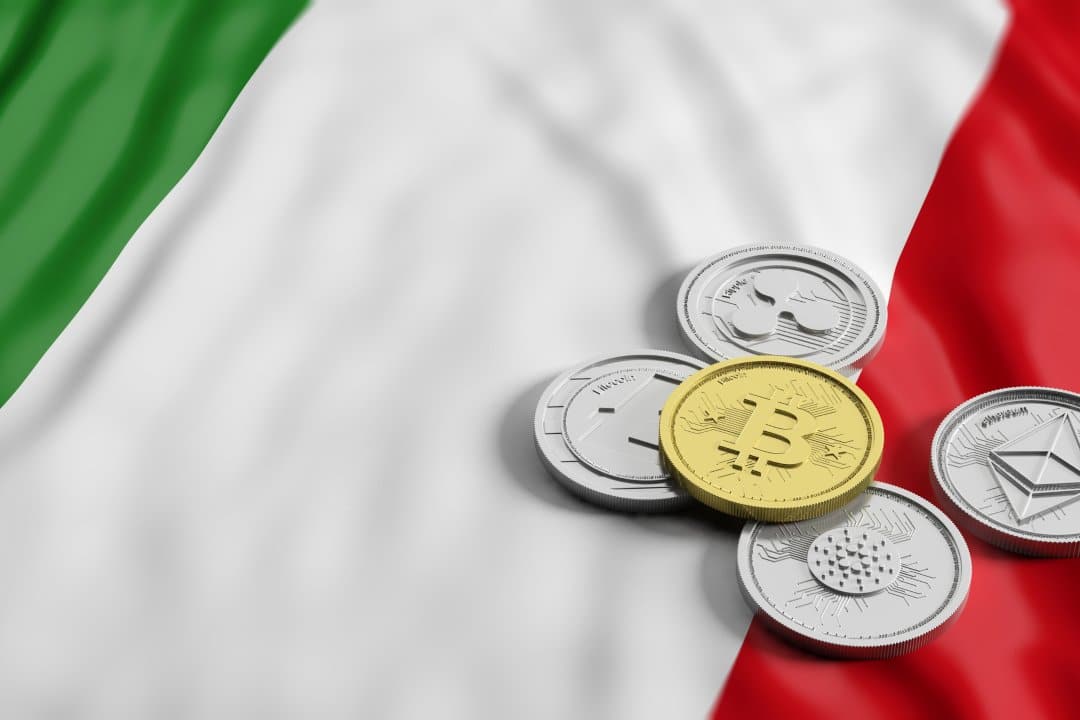Italy is a very unique case in the crypto industry. Not because it has one of the best-developed blockchain industries, or because it’s the home of the largest company in the world in terms of mining cryptocurrencies, but because it is situated right in the middle of two countries that have essentially become cryptocurrency hubs in Europe.
The two countries are Malta and Switzerland. Malta is one of the, if not the best place to be a crypto trader in, while Switzerland is the best place for crypto companies.
These two countries, alongside Gibraltar, represent the source of all things blockchain for various EU member states, and Italy, being the nearest major country, has indeed experienced some kind of influence from its neighbours.
No hard feelings towards cryptocurrencies
One key feature of Italy is that it has no real definition of cryptocurrencies on its territory. The digital assets are relatively untouched by government organisations, and neither do they prevent any type of blockchain company or mining firm to a start-up within their borders.
There were a few mishaps in the past where several local governments accused Bitcoin of being nothing but an overhyped scam, which started talks about potentially identifying every crypto holder, trader, and distributor in the country. Naturally, though, that did not happen.
It soon turned out that there were indeed several fraudulent companies in the country, mostly targeting foreign customers, but being a member of the European Union does somehow oblige you to protect your fellow member states. Therefore the Italian government was quite quick to “get rid of the problem”.
Nowadays, should there be any type of fraudulent activity within the boot-shaped country, it’s usually dealt with immediately due to how small operations are becoming. One of the most recent cases where several citizens reported a potentially fraudulent company was Bitcoin Era, which was promising a crypto trading algorithm to its customers. The biggest blunder was that they had offered this service to EU citizens, which naturally prompted the government to react.
What has Italy learned from its neighbours
One of the many lessons that the Italian government could learn from both Switzerland and Malta is that this new tech industry is immeasurably lucrative. Meaning that local entrepreneurs could easily undertake a serious project and turn it into a global sensation. Or, the regular citizens could simply generate much more income through market volatility, and therefore directly, or indirectly affect the country’s consumer purchasing and spending power.
Considering that most of the European Union, and the whole world for that matter, is facing serious economic growth issues, this would have been an extremely advantageous development to somehow mitigate the damage caused by a potential economic recession.
Furthermore, as divided and quarrelsome Italian politics may be, it seems that most politicians can agree on several points outlined by the blockchain here and there. Multiple representatives of prominent political parties in the country have endorsed blockchain technology as a tool for much more secure, transparent and effective voting in the country.
It hasn’t been implemented quite yet, but the fact that it was mentioned is already a major step towards the development of the technology on a central level (even though crypto fans like to avoid that word).
Possibility of FDI
Both Malta and Switzerland managed to rake in millions of Euros through Foreign Direct Investment thanks to their friendly disposition towards cryptocurrencies, and Italy has the same opportunity.
As already mentioned, in the wake of the upcoming recession, Italy will have to find a “safe haven” industry which it can rely on for relatively better stability. But if it doesn’t truly invest itself in the blockchain, the difference in the ramifications on the economy that the recession will have on Italian and Swiss or Maltese economies will make the disparity obvious, thus prompting the country for better adoption.
It may be a far fetched conclusion, but Italy has the capability of becoming yet another cryptocurrency hub for European Traders, and being one of the major economies in the region, it can quite possibly lead the industry to a new spike in evaluation, alongside Asian and North-American countries.




